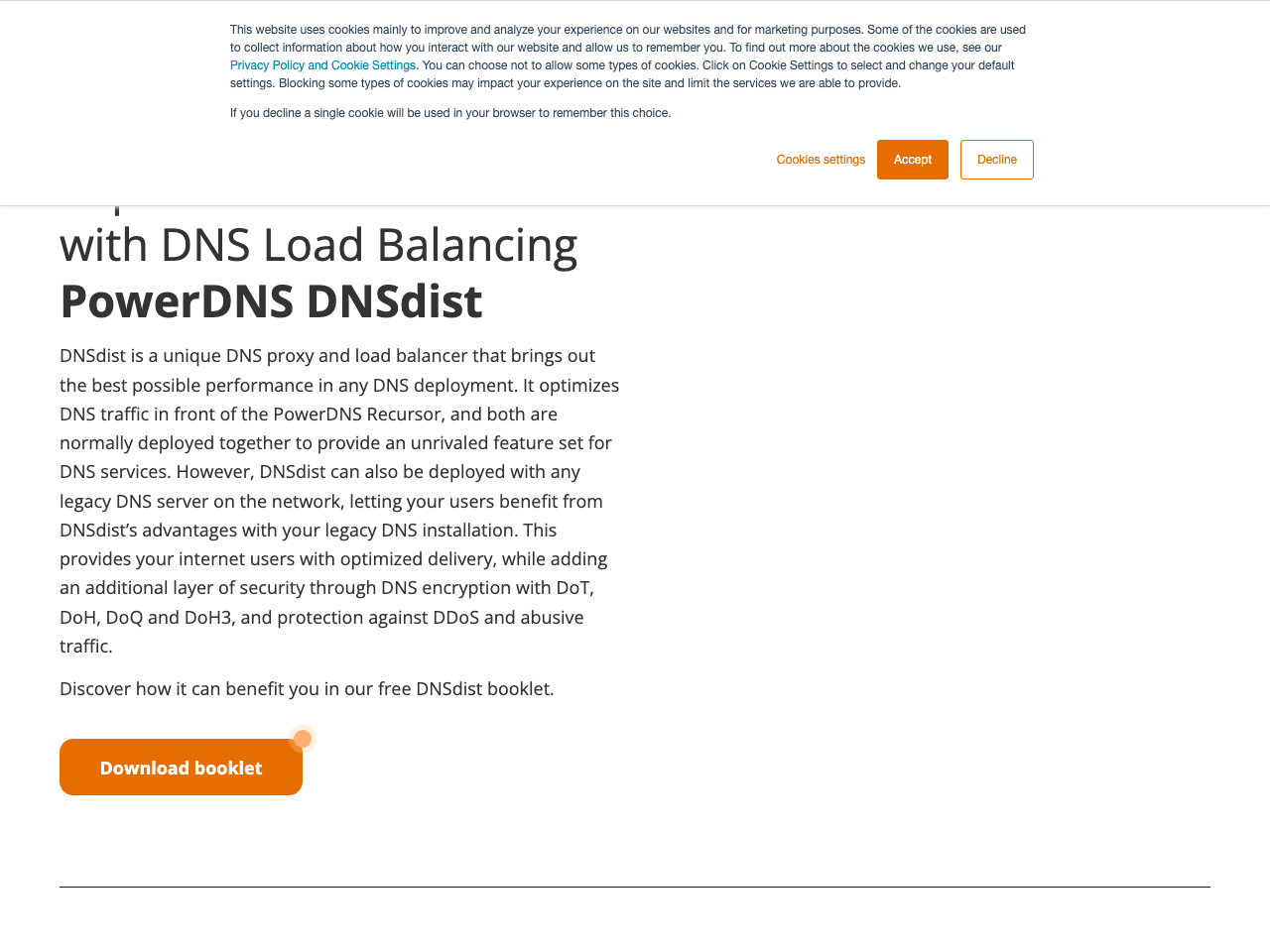PowerDNS dnsdist
PowerDNS DNSdist is a state-of-the-art DNS load balancer and security solution that enhances performance, privacy, and protection for DNS deployments.
Description
PowerDNS DNSdist is a high-performance DNS proxy and load balancer designed to optimize DNS traffic and enhance security. It acts as a front-end for recursive or authoritative DNS servers, improving performance by intelligently routing queries and distributing the load. DNSdist seamlessly integrates with PowerDNS Recursor but also supports legacy DNS servers, offering a versatile solution for various environments. It provides crucial security features such as protection against DDoS attacks, DNS tunneling, and exfiltration. Furthermore, it supports all standardized DNS encryption mechanisms (DoT, DoH, DoQ, and DoH3), safeguarding user privacy and preventing DNS requests from being diverted to third-party providers. DNSdist's flexible policy engine, based on Lua scripting, allows for customization to meet specific needs and local requirements.
Features
DNS-aware load balancing with various techniques (round robin, cache-based routing). Support for all major DNS encryption protocols (DoT, DoH, DoQ, DoH3). Protection against DDoS attacks, DNS tunneling, and exfiltration. Flexible policy engine based on Lua scripting for customization. Seamless integration with PowerDNS Recursor and compatibility with legacy DNS servers. Comprehensive monitoring and reporting of DNS traffic and security events. High availability and scalability for large deployments. Deployment options including cloud-native installations on Kubernetes.
Benefits
Improved DNS performance and response times through load balancing and intelligent query routing. Enhanced security with protection against DDoS attacks, DNS tunneling, and exfiltration. Increased user privacy and data protection through support for DNS encryption protocols (DoT, DoH, DoQ, DoH3). Flexibility to work with PowerDNS Recursor or legacy DNS servers. Centralized monitoring and reporting capabilities for performance and security events. Customizable security policies through a Lua scripting engine. Maintain control over users' DNS traffic and prevent its redirection to third-party providers. Simplified deployment and management, particularly in cloud environments.
Links
- Home: https://www.powerdns.com/dnsdist.html
- Source code: https://github.com/PowerDNS/pdns.git
- Open Source
- ✅
- European
- ✅
- Country
- NL
